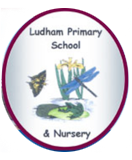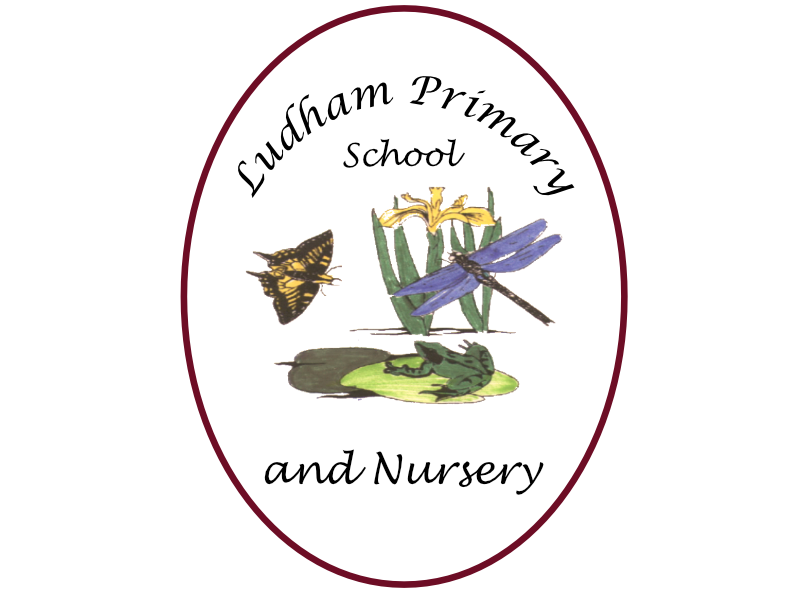Music
INTENT
At Ludham Primary School, we are MUSICIANS! We want our children to love music. We want them to have no limits to what their ambitions are and grow up wanting to be music producers, songwriters, composers or rockstars! Our vision, at Ludham is to give children access to an engaging and fun music curriculum reflecting the world they live in now, but at the same time giving them access to musical styles throughout history. Children are able to listen and appraise a variety of musical styles alongside performing pieces and creating their own compositions through the use of instruments and technology. To achieve this, all children access a variety of musical games, songs, instruments, music workshops, and extra – curricular activities giving them practical hands-on experience. We hope children continue to grow in confidence as they progress through the musical curriculum and become passionate in their responses to music. Added to this, we want children to become more independent learners within this area, reflect upon their learning and develop resilience within the musical world. As a school, these are our aims:
- To encourage awareness, enjoyment and appreciation of music in all its forms.
- To develop imagination and creativity.
- To help children of all abilities develop positive attitudes and to experience success and satisfaction in music.
- To offer opportunities to sing, play instruments, compose, listen and appraise.
Singing skills- A singing culture will be established and nurtured within the school. Children and adults in the school will be encouraged to sing whenever appropriate to aid well -being and health as well as musical outcomes.
Instrumental skills – Children will be taught to sing a wide-ranging variety of songs and to use their voices expressively. They should have the opportunity to play both tuned and un-tuned instruments with increasing control and should rehearse and perform with others, with an awareness of audience.
Composing skills– Children will create Musical patterns and will be shown how to explore, select and organise musical ideas, recording these in a variety of ways, (e.g.: pictorial score, by means of a digital recorder, tape recorder or video or using notation).
Appraising skills- Children will be given the opportunity to explore and explain their own ideas and feelings about Music, using Music, dance, expressive language and Musical vocabulary. They will analyse and compare sounds and will become confident at suggesting improvements for their own work and that of others.
Listening and applying knowledge and understanding- Children should be able to listen with concentration and to internalise and recall sounds with increasing aural memory. They will develop a growing awareness of the interrelated dimensions of music. They will learn that time and place can influence the way music is created, performed and heard, that music is produced in different ways and is described through invented and standard notations which will be applied appropriately throughout their musical journey in school.
Music – IMPLEMENTATION
- Children at Ludham participate in a weekly music lesson with a music specialist
- At Ludham, we make use of the online Musical resource Kapow for delivery of music across the school.
- Kapow planning is used by teachers to drive children’s development within music. Every year group will build upon the learning from prior year groups therefore developing depth of understanding and progression of skills. This serves as a base to aid and enhance our teaching, but is not intended to be rigidly adhered to. Teachers should make professional judgements about when to adapt, miss out or add additional materials where this would benefit learning.
- Lessons provide opportunities for children to develop practical skills and progress by listening and appraising, singing, playing, composing, and performing.
- We promote an enjoyment and foster interest of music through regular singing practice, musical workshops, and other extra- curricular opportunities such as the school and Young Voices choir and music clubs.
- Pupils experiencing difficulties will be given extra encouragement by working in a small groups with the teacher/ support staff or with a more musically able child.
- Our assessments allow us to use data to inform future teaching and learning.
- As well as music lessons in class, children are encouraged to listen to a range of music through various in and out of school opportunities.
- Performances take place within various school activities and are integral to the school ethos.
- The Music Specialist leads regular whole school assemblies which include song learning and music appreciation.
- Instrumental groups/choir will be encouraged to perform in Assembly whenever performances are ready to be heard.
- There will be an Annual Music event for children to perform instrumental and vocal music.
- Kapow can be supplemented by the subject leaders and the teacher’s own input to match and compliment the creative curriculum. The scheme also provides the necessary details, activities, accompaniments and recordings to support our music teaching.
- Music skills and skills progression are monitored, as is the delivery of music.
Resources: We have a range of music equipment and resources that can easily be moved around the school. Equipment will be increased where finances allow.
- There are a full class set of ukuleles and a number of tuned instruments including: Keyboard, tambourines, drums, bells and more.
The school class set of iPads have music apps installed.
Access to Kapow resources is available to staff.
- Links to other appropriate sources of recording (e.g. YouTube ) are regularly shared via the school internal systems
EYFS
Through Expressive Arts, children are taught to sing songs, make music and dance. Children are given opportunities to experiment with ways of changing sound and develop an understanding of pulse rhythm and pitch. Children follow a scheme of work from Charanga Music School and enjoy listening and responding to different styles of music, learning to sing, joining in with nursery rhymes and action songs which leads to playing classroom instruments and performing for others. Children are also encouraged to use everyday objects to make music and create sound, children enjoy exploring our music wall outdoors and experiment with sound using objects made from different materials such as wood, metal and plastic. Children experiment with water buts, kettles and pans, piping, guttering, bin lids and many different types of beaters.
Music – IMPACT
The impact of this Music curriculum will lead to outstanding progress over time across key stages relative to a child’s individual starting point and their progression of skills. Those children with a particular interest or aptitude in music will be given the opportunity to extend their education in a variety of ways, for example, orchestral groups, singing club, instrumental performances in assembly. Children will therefore be expected to leave Brockmoor reaching at least age expected expectations for Music. Our Music curriculum will hopefully foster a love and increasing enthusiasm for the subject amongst our children, and a potential for life- long musical study.
Year 1 to 6 - End Points
The key assessment criteria for music have been devised in such a way that they can be applied to allow teachers to assess how well children are developing as musicians.
Teachers at Ludham Primary School and Nursery may wish to supplement these key assessment criteria with other criteria if they feel that this adds value.
In devising the key assessment criteria, consideration has been given to what is age appropriate in line with the key stage programmes of study.
These have been tested and evaluated by class teachers. In presenting these criteria, there is no suggestion that this is the only ‘correct’ sequence; but rather a suggestion to help teachers plan and assess.



